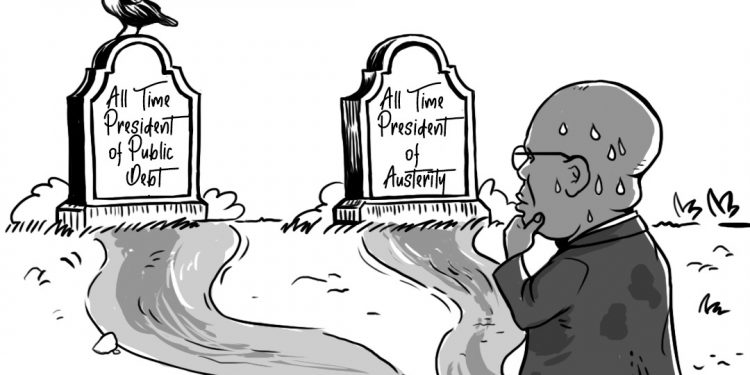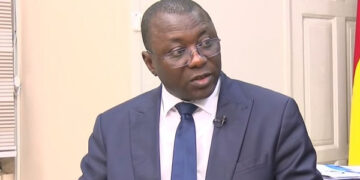Despite the rhetoric and the one hundred-billion-cedi Ghana CARES ‘Obaatampa’ Programme, HE Nana Addo Dankwa Akufo-Addo, is facing a choice between “the Devil” and “the Deep Blue Sea” with respect to the economy.
He faces the possibility of going down in history as the all-time ‘President of Public Debt’ or the ‘President of Austerity’. The President’s choices are hard because the NPP will incur the wrath of Ghanaians regardless of the path he chooses. Ghana faces grave Economic Challenges in 2021. The Ghanaian economy is officially in a recession after two consecutive quarters of negative GDP growth.
On 16 December 2020, the Government Statistician, Samuel Kobina Annim, announced that Ghana’s GDP contracted by 1.1% in the third quarter of 2020 after a contraction of 3.2% in the second quarter. A recession brings the spectre of high unemployment, reduced revenue collection combined with increased demand for stimulus packages.
Businesses face reduced demand, revenues and profits. Customer defaults will rise and this will trigger staff layoffs and other unpleasant cost-cutting measures. The biggest threat is of bankruptcies and business closures. The standard prescription for a recovery from recession is an economic stimulus package and yet Ghana is ‘Broke’.

The only way the country can start to fund a half-way decent stimulus package in 2021 is the proposal to borrow USD 5 billion on the international capital markets. At the end of June 2020, Ghana’s debt stock was approximately GHS 258.4bn. An increase of 118% in four years. As of June 2020, 89.1% of Ghana’s revenue and grants were used to service debts.
The debt service cost in 2019 was 58.1%. Ghana’s debt service cost in 2020 is projected to be 71.5%. This is the highest in 20 years. And if that was not bad enough, the energy sector debt continues to mount. Who will be the brave one to ‘renegotiate the take or pay contracts’ and upset the international community which provides us with more and more debt.
This is the “Devil”: Ghana can continue to borrow and eventually the Ghanaian economy will ‘crash’, Lebanon style. The effects will be heavy cuts to Government expenditure, massive layoffs, unemployment (30% plus), currency crash, and a severely diminished standard of living.
The conclusion of the Joint World Bank-IMF Debt Sustainability Analysis on Ghana (December 2019) is that “…. Ghana is at high risk of external public debt distress with thresholds breached on the Present Value of external debt to GDP ratio, the debt service-to-exports ratio, and the external debt service-to-revenues ratio, with the latter exceeding the threshold throughout the forecast horizon.”
To avert the risk of debt distress, the country must reign in expenditure and increase tax revenue. Therein lies the “Deep Blue Sea”. To reign in expenditure, projects that have made the government popular will have to be severely curtailed or cancelled.
These include Free SHS, free water and electricity, NABCO and payments to depositors with defunct financial institutions, etc. It is also worth noting that Ghana’s tax collection rate as a percentage of GDP is low. Good luck to the man and/or woman who will eventually impose a property tax regime in Ghana that works at a time of business closures and job losses.
HE NADAA’s epitaph could very well read “..HE Nana Addo Dankwa Akufo-Addo, the all-time ‘President of Public Debt’.” or… “..HE Nana Addo Dankwa Akufo-Addo, the all-time ’President of Austerity.”.









